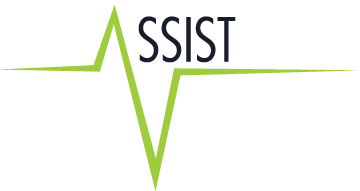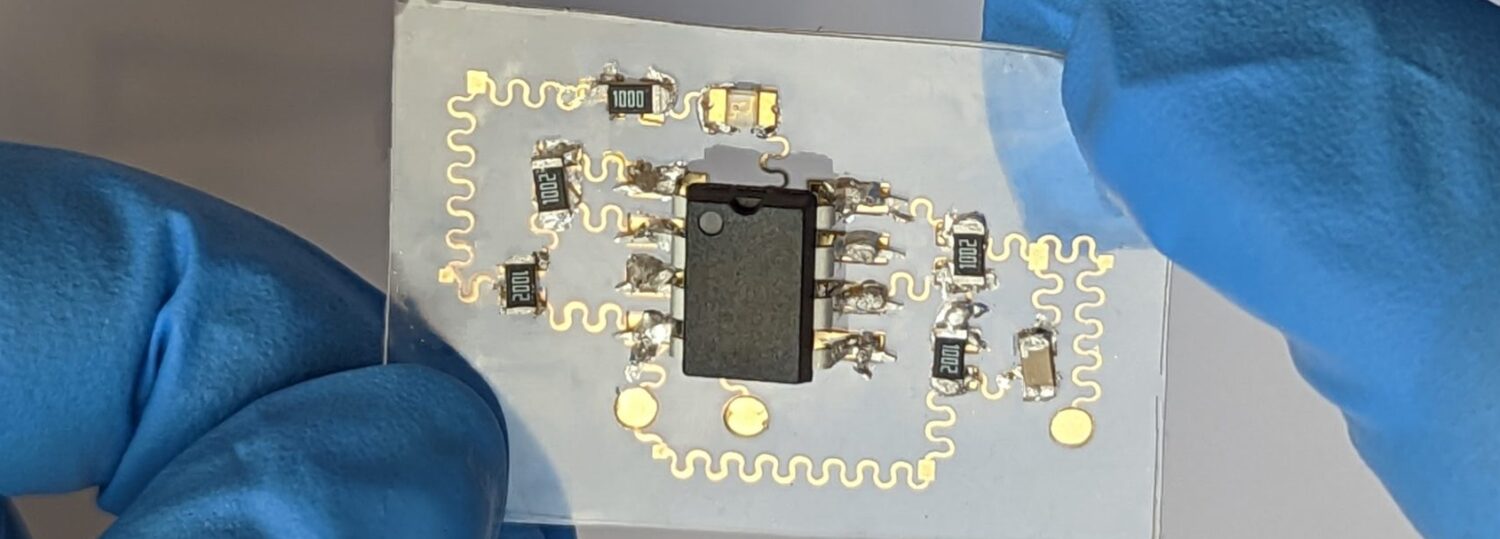Ten years ago, the ASSIST team set out to create disruptive, always-on wearable devices that would enable continuous monitoring for chronic disease management. We achieved this through unique co-engineering of energy harvesting, low-power systems-on-chip, low-power sensing and integration on flexible platforms such as textiles. ASSIST built these systems to meet the requirements of several key chronic health concerns such as asthma, cardiac disease, diabetes, and wound monitoring. We have built numerous partnerships with clinicians to validate our wearable systems and with industry to translate our intellectual property and technologies. The ASSIST Center is led by NC State University and includes Penn State University, University of Virginia, Florida International University, University of Michigan, University of North Carolina at Chapel Hill, University of Utah, and University of Texas at Austin as partners. We maintain our technical leadership in five theme areas: energy harvesting and storage, low-power sensing, low power systems-on-chip, smart textiles and flexible materials, and engineered systems.
2022 was a pivotal point for the Center. In September 2022, after 10 productive years, we graduated from the National Science Foundation. During this time, we have filed 90 inventions, spun off 10 companies, generated 53 patents, graduated 105 Ph.D.s, published over 650 papers and engaged hundreds of students in our educational pipeline. On behalf of the entire Center, we are genuinely grateful to the National Science Foundation for this opportunity.
As we celebrate all that we have accomplished, we remain steadily focused on our vision of gaining vigilant data-driven insights into human health. To this end, in our self-sufficiency phase, we have added several new directions into the Center’s mission in addition to our core projects. These new projects, highlighted in this portfolio, range from implantable devices and novel ultrasound-based sensing and imaging, to the novel use of textile fibers. In addition, while we have primarily focused on passive monitoring and sensing to date, we are now adding actuation mechanisms through advanced flexible materials and designs in wearable systems. Actuation devices are the next frontier for wearable systems, opening new opportunities in human comfort as well as pain management and behavioral modification. The ASSIST Center and its team are uniquely positioned to make disruptive changes in this space.
In the past year we welcomed new members to our leadership team who are driving critical programs for the next generation of ASSIST. Dr. Alper Bozkurt has taken over the role of deputy director and is building our core strength in implantables as well as new use cases such as healthy aging and early detection of cognitive decline. Dr. Bozkurt had already been part of the leadership team as a Testbed Leader since the Center’s inception and will continue in this role to lead our systems integration efforts. Dr. Ravi Chilukuri has taken the helm of the industry program as our new Innovation Ecosystem Director. He brings his long track record of industry research and development as well as business development to further expand ASSIST’s industry program. Under his leadership, we have already welcomed several new members to the ASSIST industry board.
Our faculty members are getting international recognition for their efforts. Dr. Ömer Oralkan and Dr. Amay Bandodkar received the IEEE Sensors Council research excellence awards. Dr. Douglas Werner was inducted into the National Academy of Inventors. Drs. Ömer Oralkan, Xiaoning Jing, and Shekhar Bhansali all became members of the 2023 Class of IEEE Fellows, the highest technical honor given by the society.
Our Education Director, Dr. Elena Veety, continues to build a community of all levels of students by offering programs that target K-12 students and teachers, and providing undergraduate research opportunities and graduate assistantships. We also provide training for all our students in translational skills not taught in the classroom. In the summer of 2022, we hosted new weeklong summer camps for high school students. Furthering our goal of workforce development for students and professionals, we offered a new hands-on data analytics short course in December 2021. Our first annual Implantables Workshop took place in May 2022, which was a huge success, so much so that we plan to offer this again. We also plan to host a remote workshop to understand the needs of early detection of Alzheimer’s disease and related dementias.
In this, our 11th year, we are pushing ahead in our vision to disrupt healthcare through continuous monitoring.

